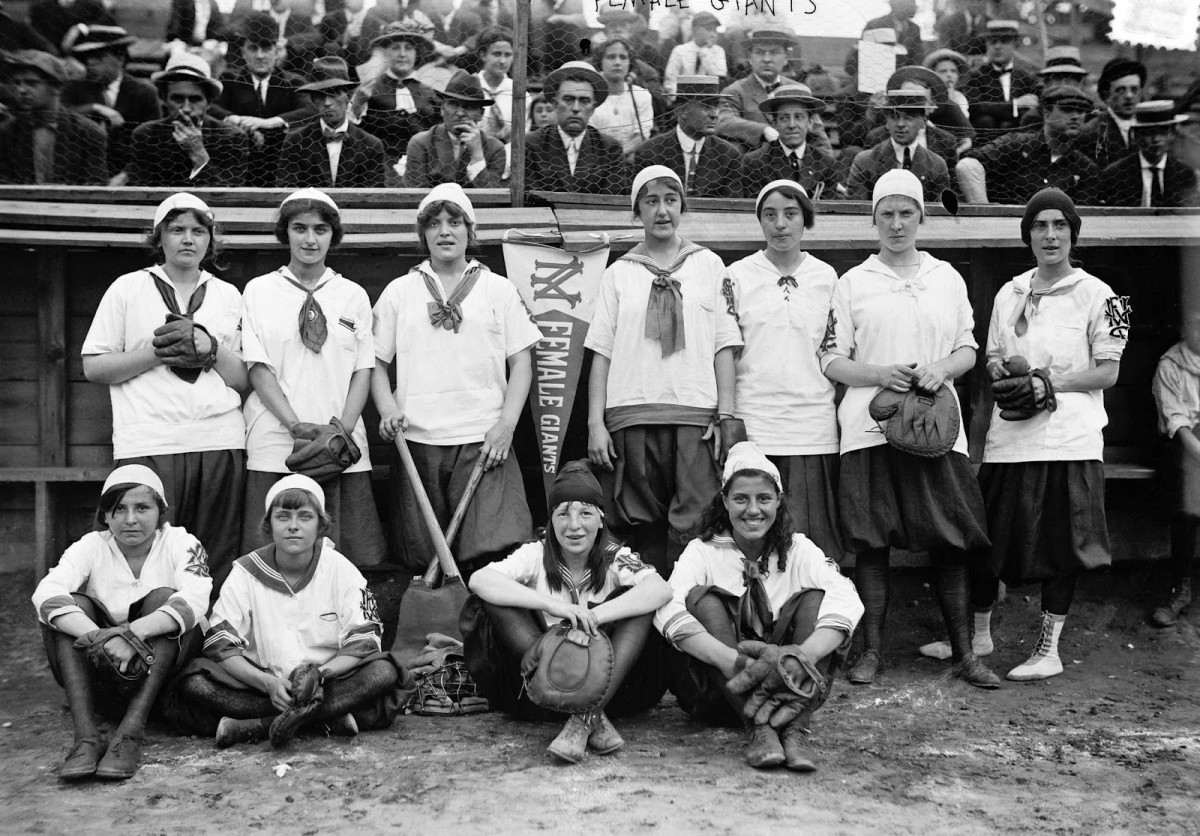Bending Tradition With "Bend It Like Beckham"


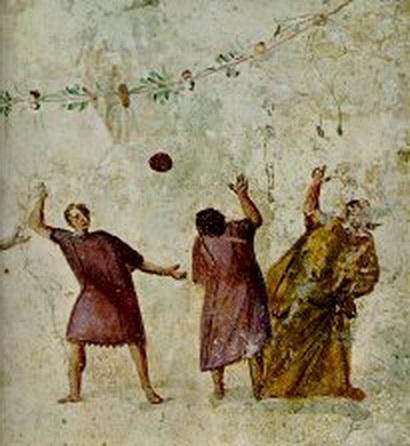

The history of sports can be traced back to the cultures of ancient times. Sports such as hurling in Ireland, harpastum in Rome, cuju in China, and polo in Persia originated over two and a half thousand years ago while others like the Mesoamerican ballgame were played as early as 3000 years ago (Britannica Encyclopedia, “Sports”). Different cultures developed sports as an exclusively masculine affair not only as a way to increase mastery over physical skill but also as a result of social changes. It wasn't until the advocacy of women's rights in the early 20th century that female participation in sports began to increase. The film "Bend It Like Beckham", which deals with the conflicts that women have had in playing sports, is a story about a young Indian girl living in 21st century England named Jess Bharma who's passion for soccer allows her to play for her local soccer team, the Hounslow Harriers. Throughout the movie, Jess attempts to keep her love for soccer a secret from her conventional parents as they attempt to conform her to the social norm of being a "lady". After a long endeavor with both her soccer team and with her family, Jess and her British friend, Jules Paxton, earn a scholarship to go play for the soccer team of Santa Clara University in California. Through this film, director Gurinder Chadha uses soccer to address the social issue of cultural conservatism and the effects it has had on women's involvement with sports.
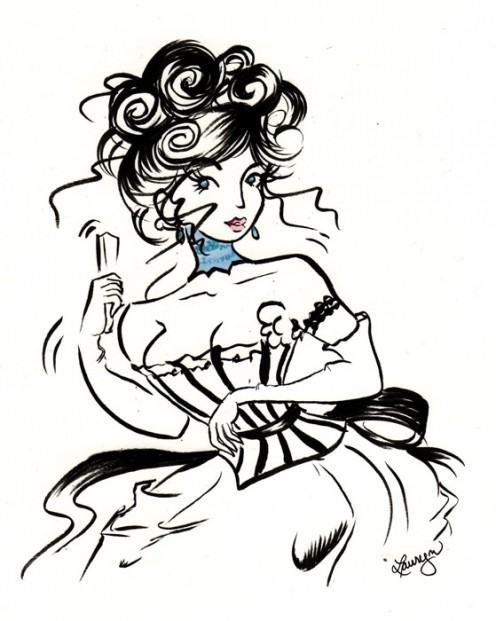



Becoming A "Lady"
"Bend It Like Beckham" demonstrates an accurate representation of the struggles that younger generations face in their tradition-bound cultures while living in a looser and freer modern world. The film deals in great part with the many restrictions that women face in sports within their own culture and family. In the movie, both Jess's and Jules's mothers act as roadblocks to their ambitions of playing soccer by attempting to turn their daughters into "proper women". This was shown by both parents throughout the movie such as when Jules's mother tries to convince her to buy more "feminine" clothes and when Jess's mother attempts to teach her how to cook as an alternative to playing soccer. Through these examples, the film portrays the norm of being a "lady" as a universal idea that is present in different cultures and it shows how the norm has hindered the progress of women's advancement in sports. In addition, the family value of planning for a successful future plays an important part for Jess. While she plays soccer with the aspiration of playing professionally one day, her parents have other plans for her that do not include soccer. These two conflicting goals create a sense of doubt and confusion for Jess that almost causes her to abandon soccer completely as she begins to wonder whether it was wiser to trust in her parents rather than in her own dreams. By creating a distressing situation of ambivalence, a culture's unyielding approach to change is a dangerous obstacle to one's true potential if it means involvement in conventions outside of the old cultural establishments.
Title IX of the Education Amendments
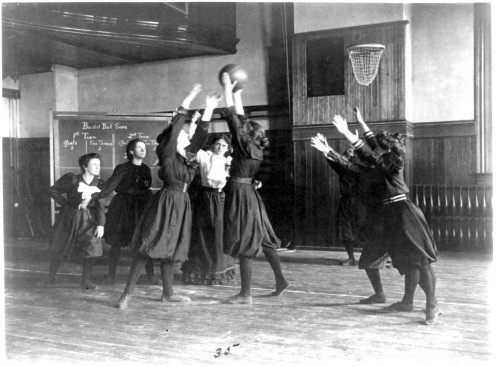
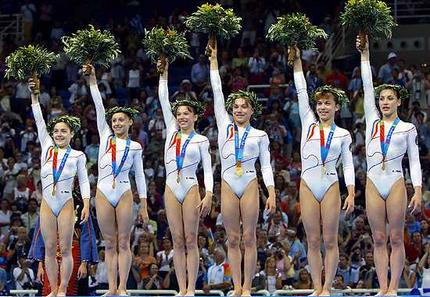

While the Olympic Games saw female contestants starting in 1900, most sports remained patriarchally dominated until the second half of the 20th century. The United States was one of the first countries to begin reforming sports for female participation due in part to the national requirement for physical education in public schools. This provided women with an early introduction to athletics from which they could develop an interest in sports, even if they were not able to expand on these interests later in life. It wasn't until 1972, however, that Title IX of the Education Amendments of the United States provided women with equal conditions on which to engage in sports. According to Title IX, “No person in the United States shall, on the basis of sex, be excluded from participation in, be denied the benefits of, or be subject to discrimination under any education program or study receiving Federal assistance” (Title IX, Education Amendments of 1972, Section 1681). This act became a monumental victory for women by granting them an egalitarian opportunity for involvement in sports. Furthermore, this measure released athletics from the paternal culture on which it had long been bound to and it opened the door for players of both sexes. This was something that, at the time, had not yet happened in other nations such as Britain and it allowed the U.S. to become a leader in women’s sports for a time, particularly in soccer.
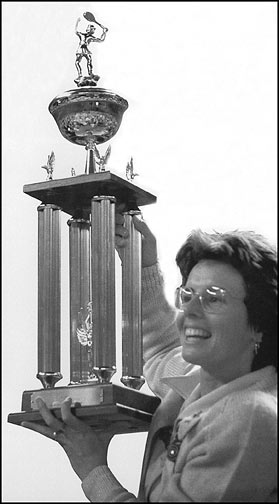
Battle of the Sexes
Little by little, the prominence of women's sports grew. In 1973, tennis player Billie Jean Moffitt beat top-ranked player Bobby Riggs in the widely publicized, “Battle of the Sexes”, in which Riggs was to prove that men surpassed women in athletics. This symbolic match enhanced the reputation of female sports players by proving to the world that men were not the champions in all sports. By the 1990s, women's professional team sports had achieved never before seen popularity, most notably in soccer. The United States Women's National Soccer Team won the first Women's World Cup in 1991, and again 1996, as well as 3 Olympic Women's Gold Medals in 1996, 2004, and 2008. These and other successes helped expand women's soccer throughout the nation and the world. Furthermore, according to BBC News the 2003 release of “Bend It Like Beckham” spurred such a massive interest for soccer from girls all across India that, “...it's [it] led the launch this month [January, 2003] of the country's first girls' football league”.
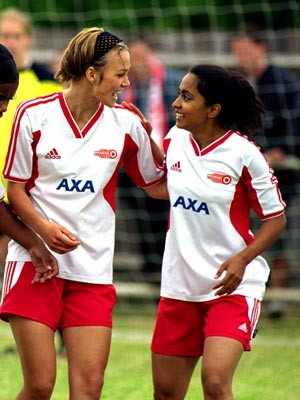
Equality In Sports
The struggle that women have gone through in playing sports has lasted over a hundred years. While much has been accomplished since then, the characters of Jess Bharma and Jules Paxton in the film “Bend It Like Beckham” demonstrate how even now in today's 21st century contemporary world women of certain cultures and traditions are still being denied the opportunity to play sports. Through great effort and sacrifice, both girls in the movie are able to overcome the prejudices that are placed upon them by their cultures and accomplish their ultimate goal of playing soccer professionally. It is with the same determination and confidence which Jess and Jules exhibit, that women all over the world must have if complete equality in athletics is to be one day recognized.




